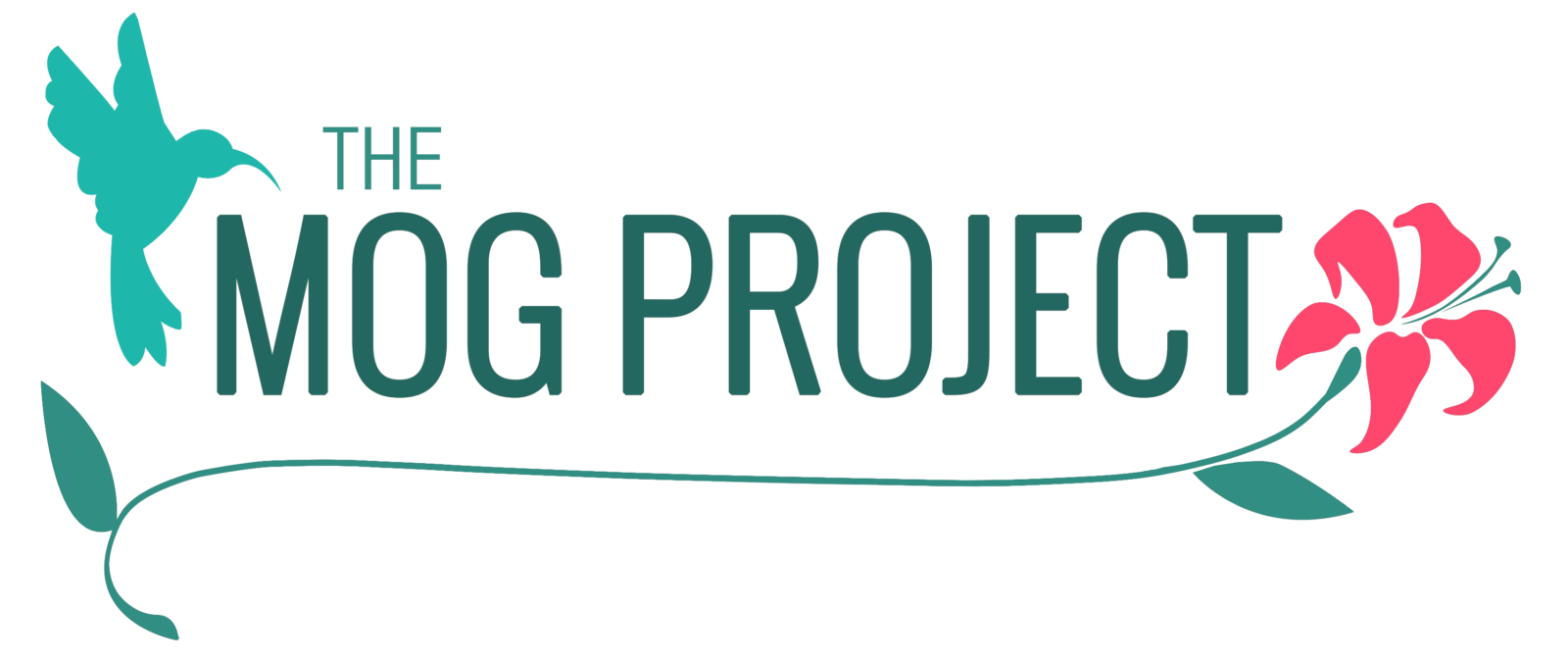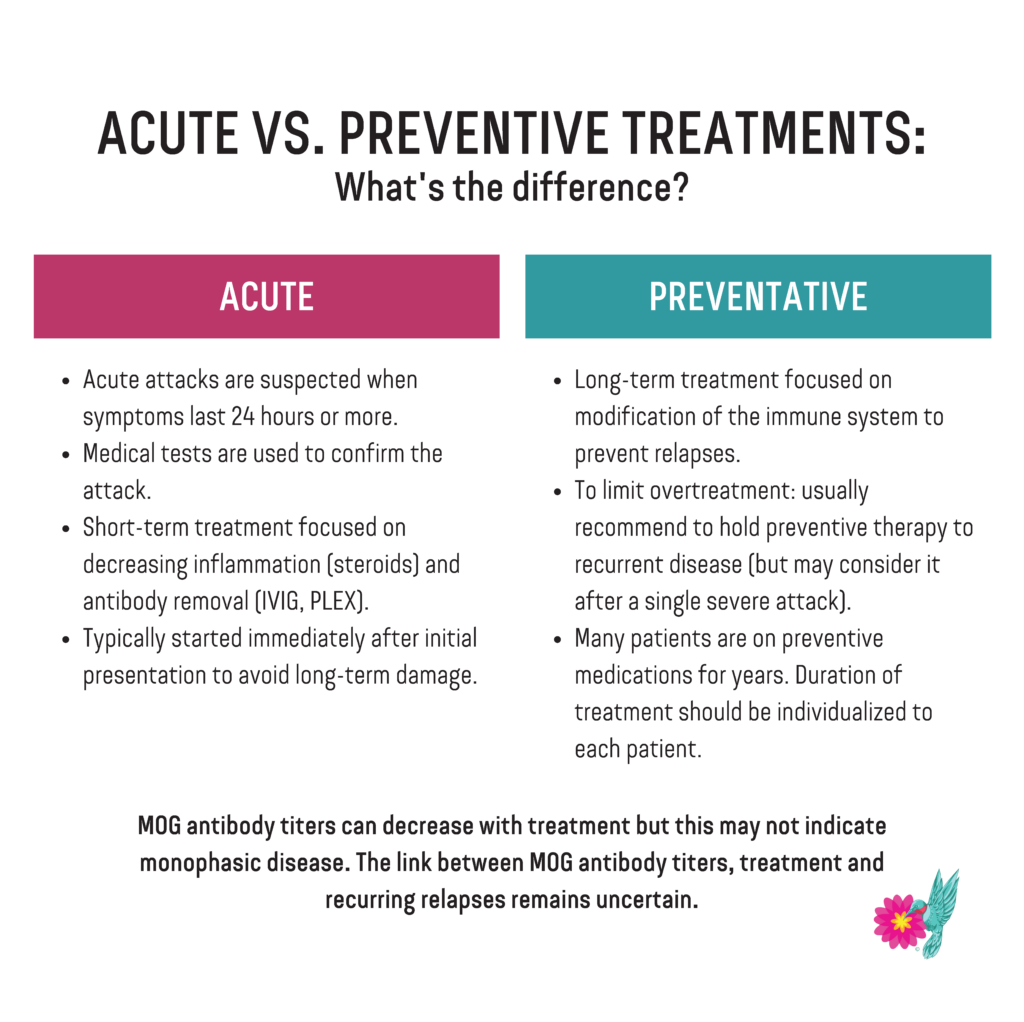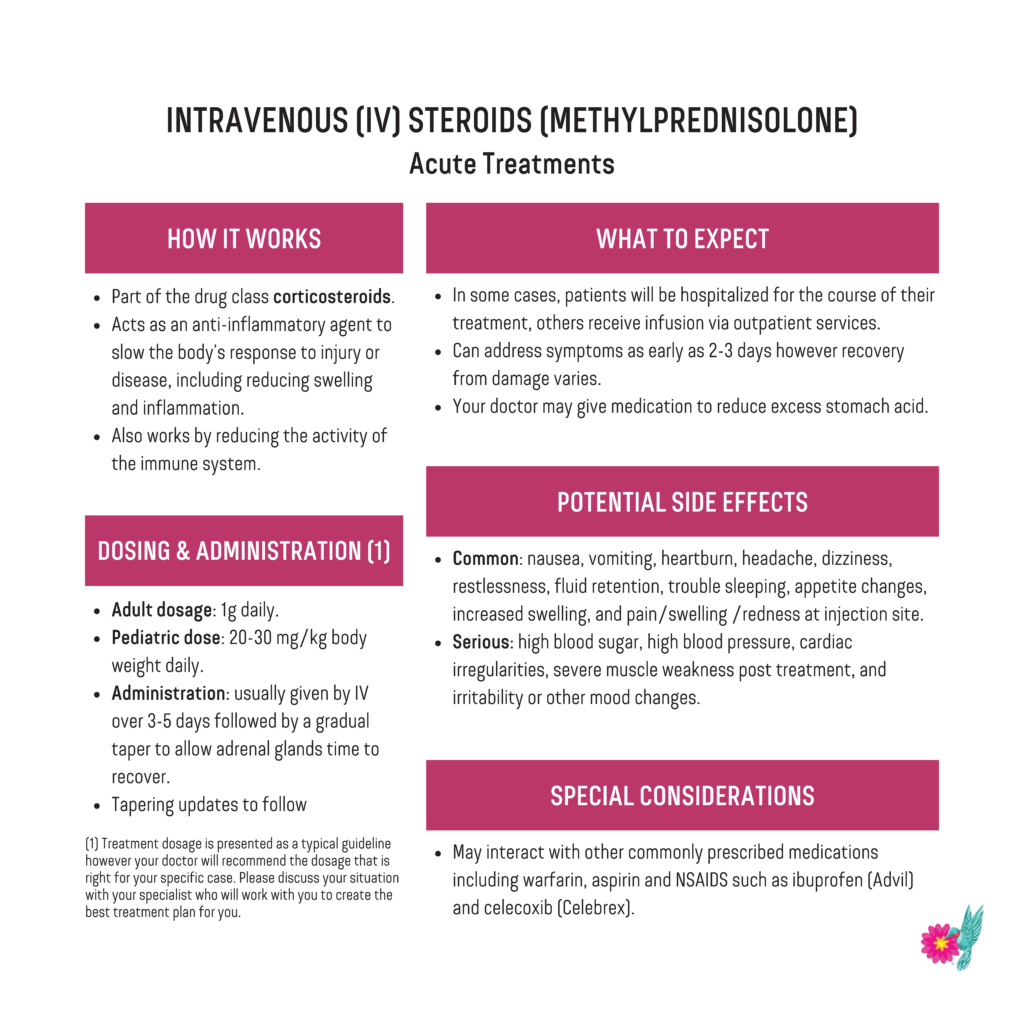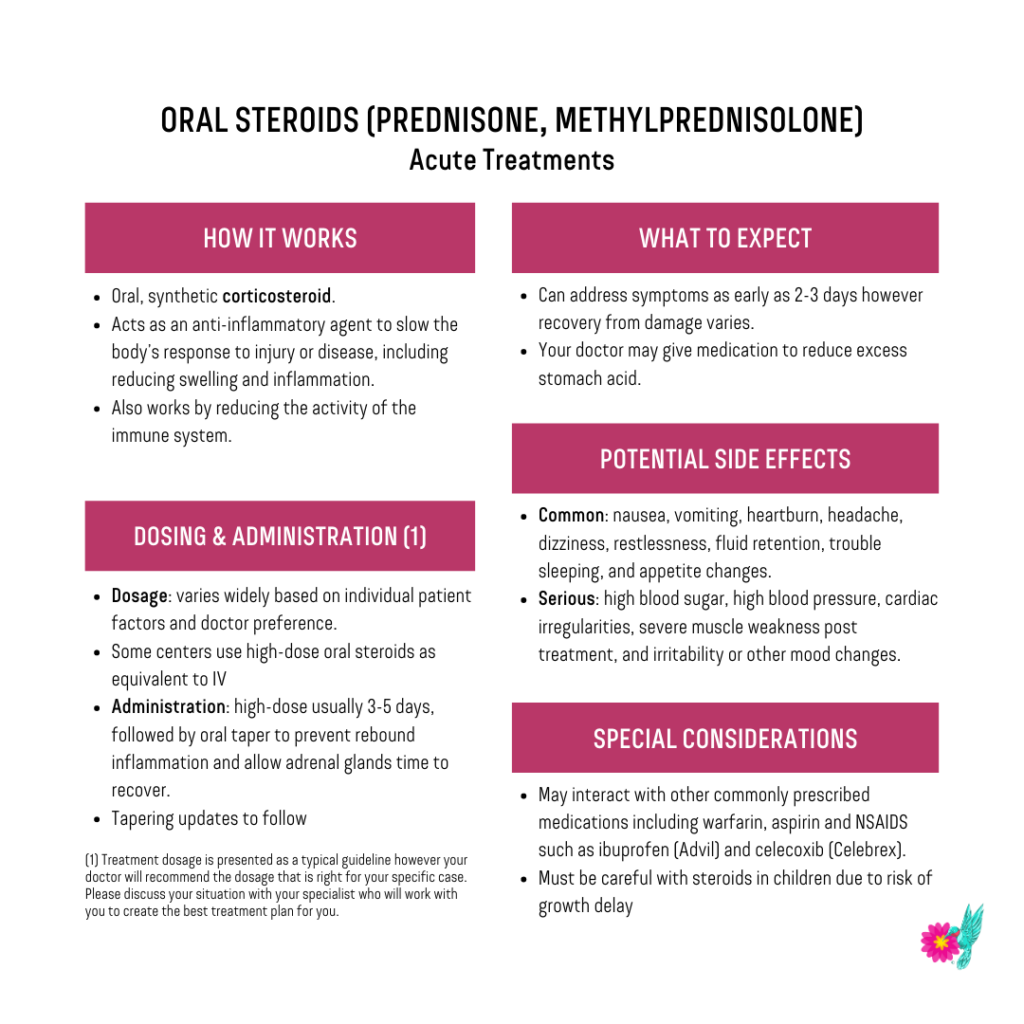MOGmentum Series 3: Treatments
The third in a collaborative series of informational graphics brought to you by
The MOG Project and The Sumaira Foundation for NMO
We are pleased to present PDF files available for download that support the visually impaired
available in English, French and Italian.
Stay tuned for more languages to come!


















